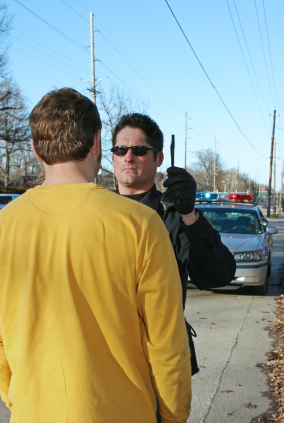
An arrest for DUI is a serious matter. Generally, there are no easy answers about whether a person should take the breathalyzer test. But there are a few principles that may influence the decision.
First, there are two opportunities to take a breath test. The first opportunity will occur on the side of the road during the traffic stop. This breath test involves a small, hand-held device called a Portable Breath Test (and generally referred to as the PBT).
The second chance to take a breath test takes place in the police station. In the police station, the breath test is conducted using a large stationary machine that is slightly larger than modern desktop computers. The machine is called a breathalyzer.
The difference between the two devices is important: the PBT is NOT admissible in evidence against the defendant but the breathalyzer IS.
The PBT is used by a police officer to assist him in determining whether there is probable cause to arrest a person for driving under the influence. The person may refuse, and there is no penalty for doing so (whereas a driver’s license summary suspension will follow for refusing the breathalyzer).
The law specifically says that the result may be used by the defendant to prove his innocence, but not by the prosecutor to prove the defendant’s guilt.
The result of a preliminary breath screening test may be used by the defendant as evidence in any administrative or court proceeding involving a violation of Section 11‑501 or 11‑501.1. See 625 ILCS 5/11-501.5.
Thus the PBT can be used by a defendant to show his blood alcohol content was less was 0.08, but not by the State for any reason.
The results of the breathalyzer test, however, are admissible against the defendant. Provided the State can lay an adequate foundation, the results become evidence against the defendant.
There is a penalty for refusing the breathalyzer, a statutory summary suspension of the person’s driver’s license. For first offenders in Illinois, the summary suspension is 6 months for failing a breathalyzer and 12 months for refusing.
Most judges and lawyers would agree there is minimal drawback for blowing into the PBT. If the result is less than 0.08, absent other probable cause, the police officer will probably let the driver go on his way. If the result is 0.08 or more, the driver probably would have been arrested for DUI anyway.

